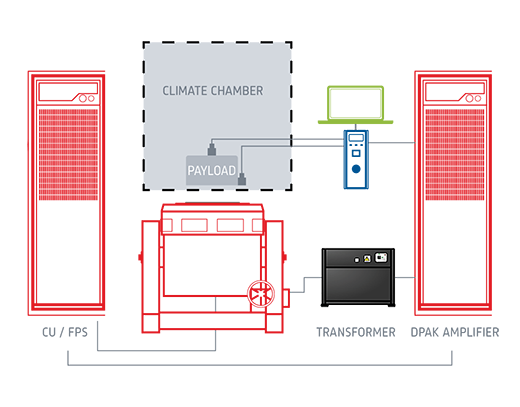
Electric and Hybrid Vehicle Battery Testing
Vibration testing of Electric Vehicle (EV) battery modules and packs, e-axles and e-drivetrains is performed during prototype development to validate product release for production.
EV battery systems typically represent 80% of the cost of the EV powertrain. The goal of testing is to identify and correct any imperfections in design or manufacturing, validate product release as early as possible, and bring new vehicles to market swiftly. Since authorities worldwide classify lithium-ion batteries as “dangerous goods”, they are also subject to rigorous regulatory test standards.
EV Battery Testing inflicts multiple stresses on the cell, module, pack or or sub-system simultaneously. Shakers apply vibration or shock loads. At the same time, environmental chambers add temperature and humidity factors. Combining these mechanical and environmental factors with electrical tests that simulate power cycling, enables engineers to observe and measure the cumulative effects on battery performance and durability.
System suggestion

The ideal configuration for EV Battery vibration and shock testing begins with a reliable and robust high-force electrodynamic shaker, powered by an energy-efficient Amplifier system. A sliptable equipped with pedestals minimises moving masses, while maximising the DUT payload. Compatibility of the platform with climatic chambers from leading international manufacturers enables test engineers to add the environmental conditions required for effective EV battery testing.

Iscriviti alla nostra Newsletter e ricevi le informazioni più recenti dal mondo del suoni e delle vibrazioni






